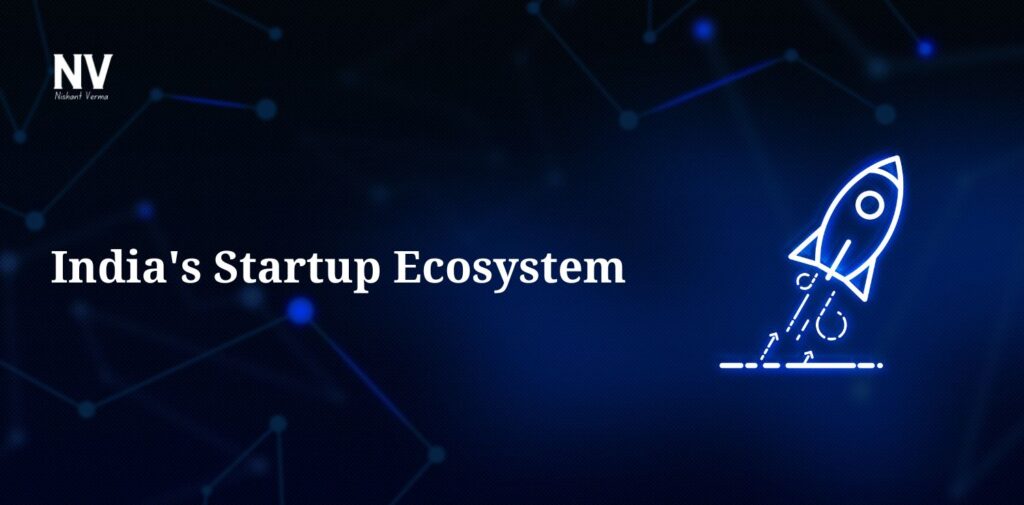India’s startup ecosystem has witnessed remarkable growth in recent years, emerging as a global hub for innovation and entrepreneurship. The country’s young and tech-savvy population, coupled with a supportive government environment, has fueled the rise of numerous startups across diverse sectors. These startup ecosystems are not only disrupting traditional industries but also creating new opportunities for employment, economic growth, and social progress.
Top 10 Leading Startups in India
India boasts a diverse array of startups, each making significant contributions to their respective fields. Here’s a closer look at the top 10 leading startups in India:
- Paytm: Paytm is a leading digital payment platform that has revolutionized the way people make and receive payments in India. The company’s mobile wallet and other payment solutions have facilitated financial inclusion and transformed the Indian payments landscape.

- Ola: Ola is an Indian ride-hailing company that has become synonymous with on-demand transportation. The company’s app connects passengers with drivers, providing a convenient and affordable way to get around Indian cities.

- Byju’s: Byju’s is an edtech company that has transformed education through its interactive and engaging online learning platform. The company’s focus on personalized learning and adaptive technology has made it a favourite among students and parents alike.

- Flipkart: Flipkart is an e-commerce giant that has played a pivotal role in India’s online shopping boom. The company’s vast selection of products, competitive prices, and efficient delivery services have made it a top choice for Indian consumers.

- Zomato: Zomato is an online food ordering and delivery platform that has transformed the way people dine in India. The company’s comprehensive listings, user-friendly interface, and reliable delivery services have made it a popular choice for foodies.

- Meesho: Meesho is a social commerce platform that has democratized e-commerce by empowering resellers and small businesses. The company’s platform enables individuals to sell products through their social media networks, expanding the reach of e-commerce to rural and underserved areas.

- Dream11: Dream11 is a fantasy sports platform that has revolutionized the way people engage with sports. The company’s platform allows users to create virtual teams of real-life players, earning points based on their performance.

- Udaan: Udaan is a business-to-business (B2B) e-commerce platform that has disrupted the traditional supply chain in India. The company’s platform connects manufacturers and wholesalers directly to retailers, streamlining the process and reducing costs.

- CRED: CRED is a fintech company that offers exclusive rewards and benefits to credit cardholders. The company’s platform incentivizes users to pay their credit card bills on time, promoting financial discipline.

- Pine Labs: Pine Labs is a fintech company that provides point-of-sale (POS) terminals and payment solutions for merchants. The company’s technology has enabled digital payments in millions of stores across India, facilitating financial inclusion and economic growth.

Impact of Leading Startups on Indian Society
Leading startups in India have had a profound impact on society, transforming industries, creating employment opportunities, and driving economic growth:
- Industry Disruption: Startups have disrupted traditional industries, bringing innovation and efficiency to various sectors. They have challenged established players and created new opportunities for businesses and consumers.
- Job Creation: Startups have been a major source of employment, particularly for young people. They have created new job roles and provided opportunities for skilled professionals to contribute to innovative projects.
- Economic Growth: The startup ecosystem has contributed significantly to India’s economic growth. Their success has attracted investments, expanded market opportunities, and fueled innovation across various sectors.
Challenges Faced by Indian Startups
Despite their remarkable success, Indian startups face several challenges:
- Funding: Access to capital remains a challenge for many startups, particularly in the early stages of development.
- Regulatory Framework: Evolving regulations and bureaucratic hurdles can pose obstacles for the startup ecosystem operating in various industries.
- Talent Acquisition: Attracting and retaining top talent is crucial for startups, but competition for skilled professionals can be intense.
Future Outlook for Indian Startups
The future of Indian startups is promising, with continued growth and expansion expected:
- Increased Investments: Investments in Indian startups are expected to grow, fueling further innovation and expansion.
- Favourable Government Policies: The Indian government is committed to supporting startups, providing incentives and creating a conducive environment for innovation.
- Global Expansion: Indian startups are expected to expand their reach globally, leveraging their technological expertise and understanding of emerging markets.
Conclusion
India’s startup ecosystem stands as a vibrant and dynamic force, propelling innovation and catalyzing transformative changes across diverse sectors of the economy. With a burgeoning number of entrepreneurial ventures, the country has become a global hub for groundbreaking ideas and technological advancements. Leading startups are at the forefront, pioneering solutions that address pressing challenges and redefine traditional industries.
These startups are not only injecting vitality into the economy but also fostering a culture of creativity and resilience. The entrepreneurial spirit is palpable, with a multitude of ventures emerging in fields such as technology, healthcare, finance, and e-commerce. From cutting-edge technological solutions to innovative business models, India’s startups are rewriting the rules and pushing the boundaries of what is possible.
The contributions of these startups extend beyond economic impact, reaching into societal realms by addressing critical issues like healthcare accessibility, education, and sustainable development. As a result, India’s startup landscape is not only characterized by economic growth but also by a commitment to social responsibility and inclusive progress.
In this era of digital transformation, India’s startup ecosystem is a testament to the power of innovation and the potential for positive change. As these startups continue to thrive and evolve, they are poised to shape the future of the country’s economy and inspire the next generation of entrepreneurs globally.




